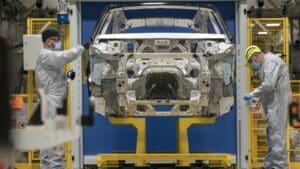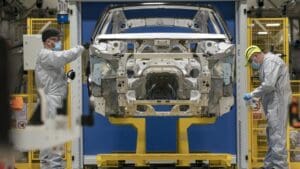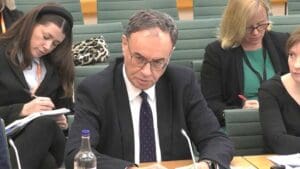Carmakers and engineers cheer UK-US trade deal as steel and auto tariffs slashed


British carmakers and manufacturers have welcomed the newly signed UK-US trade deal, which includes a significant reduction in tariffs on automotive and steel exports, offering long-awaited relief to key industrial sectors.
The agreement — the first struck under President Trump’s renewed trade agenda — eliminates proposed American tariffs of 27.5% on British steel and reduces car tariffs to 10%, covering up to 100,000 UK car exports annually. However, a 10% blanket tariff will remain in place on other British goods, raising an estimated $10 billion for the US Treasury.
The trade deal triggered a rally in UK industrial and automotive stocks, with companies heavily exposed to the US market leading the gains. Melrose Industries jumped 5.2%, IMI rose 5.1%, and Rolls-Royce gained 3.7%. Shares in Aston Martin Lagonda, seen as a direct beneficiary, soared nearly 14%, helping to lift the FTSE 250 index by 0.6%.
“This deal removes a severe and immediate threat to UK automotive exporters,” said Mike Hawes, chief executive of the Society of Motor Manufacturers and Traders. “It provides much-needed relief, allowing both the industry and its workforce to approach the future more positively.”
In exchange for tariff relief, the UK has agreed to reduce import duties on American ethanol and allow greater market access for US beef, though it stopped short of conceding on food safety standards or digital tax reforms targeting US tech giants.
The deal is the first agreement concluded since the Trump administration announced a 90-day pause on wide-ranging tariffs affecting more than 100 countries. It’s also expected to pave the way for additional negotiations with other key trading partners.
“Investors are relieved that there is some progress being made in trade deals,” said Gene Goldman, chief investment officer at Cetera Investment Management. “This provides a little optimism heading into the weekend’s negotiations with China.”
The announcement came on the same day the Bank of England cut interest rates by 0.25 percentage points to 4.25%, and warned that lingering tariff uncertainty could shave 0.3% off UK growth over the next three years.
Bank Governor Andrew Bailey welcomed the UK-US agreement but noted that broader global relief — particularly involving China — would be needed to fully stabilise short-term growth.
Despite the positive market response, analysts warned that trade frictions remain elevated. John Denton, head of the International Chamber of Commerce, noted that overall US tariffs on UK goods are still higher than at the start of the year, and that future sector-specific levies, such as on pharmaceuticals, could undermine longer-term investor confidence.
The pound reversed early gains, dipping 0.15% against the dollar to $1.33, while sterling rose 0.47% against the euro to €1.18. Meanwhile, government borrowing costs nudged higher, with the yield on ten-year gilts climbing to 4.55%.
Despite lingering concerns, the deal was widely viewed as a strategic win for UK exporters, especially those in the manufacturing and automotive sectors, and a symbol of renewed momentum in transatlantic trade relations.
With discussions continuing on other fronts, particularly UK-China trade, the agreement has given investors and industry leaders reasons for cautious optimism — if not outright celebration.
Read more:
Carmakers and engineers cheer UK-US trade deal as steel and auto tariffs slashed






